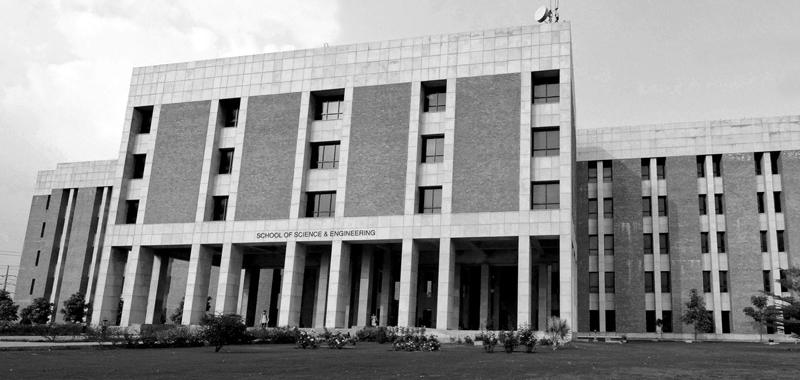Monday, August 8, 2016

A research paper by Physics faculty, Adam Zaman Chaudhry has been accepted by Nature Scientific Report and his publication processing fee has been waived off. The research is titled ‘A general framework for the Quantum Zeno and anti-Zeno effects.’
Dr. Chaudhry’s work is on how measurements in quantum mechanics change the state of the system. He explains, “Consider an excited atom, for example. This atom spontaneously decays to a lower energy state. If we repeatedly check to see if the system is in the excited state or not, we find that the atom remains stuck in the excited state. This effect, reminiscent of the paradox posed by Zeno centuries ago, is dubbed, appropriately, the Zeno effect. Just by measuring the quantum system, we are able to freeze the evolution of the quantum system. Or in other words, the decay rate goes down. This effect has attracted tremendous interest theoretically and experimentally.
On the other hand, if our quantum system is not measured so rapidly, it was found in 2000 (results presented in a Nature paper) that the opposite can happen. Namely measurements can accelerate the quantum evolution. Plainly put, if we check to see if the atom is in the excited state or not very rapidly, the evolution if frozen. But if we check not so rapidly, the evolution actually accelerates! Our effect of measuring the system now has the opposite effect. This opposite effect is called the anti-Zeno effect.
There was a catch, however, most studies (in fact, nearly all) of the Zeno and anti-Zeno effects dealt with an excited atom undergoing decay, or an excited harmonic oscillator. There was no general treatment to study the Zeno and anti-Zeno effects without any reference to any particular quantum system. My paper precisely fills this gap. For the first time, we have a general expression to evaluate the decay rate for an arbitrary quantum system as a function of the measurement interval, thus allowing us to study both the Zeno and anti-Zeno effects. I then apply this general framework to previously known cases as well as new scenarios.”
Dr. Chaudhry obtained his PhD in Physics from the National University of Singapore (NUS) in 2013 and continued working there as a post-doctoral fellow before joining LUMS in August 2014. His research focuses on harnessing the power of realistic quantum systems.




